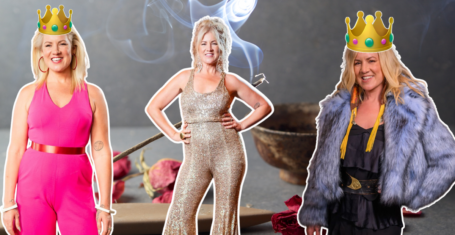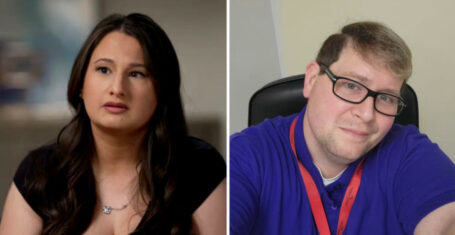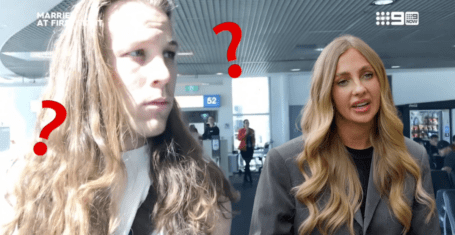
‘Did he stop me because I was black?’: Speaking out against everyday racism in Cambridge
‘How can I be a better ally to you?’
Collin Edouard, who is studying for an MMus in Music at Wolfson College, was walking into St Catherine’s College for a meeting with a professor on the 17th February.
Upon entering St Catherine’s, someone working at the Porters' Lodge didn’t let him through the gate, not believing that he was a student at the university. "I even told him the professor’s name and room number", he told The Tab Cambridge.
Collin became anxious when he was grabbed, since he firmly believes that under no circumstances a man should put their hands on another. It was a white friend of his, coincidentally also present, who assured the porters that Collin was, in fact, a student. Collin says:
“This is the problem with the layered context. When you add everything up together you have to ask yourself – what was it exactly? I saw that a white student had to tell these people that I was a student, and their tone changed”.
Collin has Haitian and Jamaican heritage, and lived in New York prior to coming to Cambridge, where he is a Gates Scholar.
He is a music teacher, and conducts choirs, researches musical education and is passionate about helping kids in deprived areas through engaging with music. He has worked with children all over the world, from Uganda to Turkey. In Collin’s experience, people are surprised to see a black person working on classical music: "Perhaps, if there were more teachers that welcomed children from all backgrounds, some of the children I once knew would still be alive or not in jail. There’s this unfortunate stereotype that people of colour do not study music academically. It’s these stereotypes that propel my focus into ending such ridiculous narratives."
From the porter’s point of view, it can be stressful securing the safety of staff and students, especially as on this day there was a protest going on outside. Therefore, they must regulate the entrance, but the stereotypes Collin flags up are clearly so deeply rooted within Cambridge that incidents like this can happen, even if the porters do not actively mean to act in a racist manner.
However, Collin comments: “If you’re a porter, you have to be more mindful about your power.
“You’re a gate keeper. And with that power comes responsibility.”
Questioning the racial undertones of being stopped, Collin admits: “I remember in the evening thinking to myself: am I making it a big deal? Am I making it up? Do I remember? Although there were cameras, and partial eyewitnesses, so all this can be verified, I’m still thinking if it was real, and I feel ashamed. I don't know why, but I feel ashamed. Did he stop me because I was black? These questions are always up for interpretation. But there is a reason why that man felt he was entitled to snatch me”.
Sir Mark Welland, Master of St Catharine’s, commented upon the case, prior to Collin receiving a personal apology. The release states: “On behalf of St Catharine’s College, I am sincerely sorry to hear about Collin’s experience. It is imperative that all members of our community are treated with respect and dignity. Please be assured that the College has already started to investigate what happened yesterday and I appreciate that Collin has kindly agreed to meet with me so that I can find out more from him.”
Collin and the Master have since met, and he's happy with the progress they're making. However, what Collin is seeking is not just a public apology, but to raise awareness and search for solutions. He would like all the porters to undergo training on how to deal with students coming from different backgrounds when they are admitted to the post.
“They have to understand what it takes to have this position of power”, he argues. He doesn’t just want to address this case, but rather advocate for structural change within the "system that we are dealing with.”
Collin shared his story on Facebook and the response he got from other people experiencing everyday racism in Cambridge was overwhelming.
Someone reminded him: “Collin, this is not just happening to you, it's just you are the one who’s vocal about it. That blew my mind. That's right, this is happening all the time to people just like me. But people are too scared to say anything.”
Collin created #speakout, and has learnt of several cases similar to his incident. “Racism is very common in Cambridge. Since I posted it on Facebook and created the hashtag, so many people who I don’t know have written to me about their experiences that – which they had never said anything about so far. And what disgusts me the most is that this issue I've just been through is so common, but people find too powerless to say anything. They feel suffocated under the weight of the power of the institution – like if I say something there’s gonna be a retaliation.”
Collin admits that he himself is also scared about possible punishment, and concerned that standing up for his case would impact his marks. He also feels ashamed and humiliated, saying: "Although the porters in my college are nothing but absolute gems, I did not pass the Porters’ lodge today. I was too scared. It was ridiculous though."
Fortunately, Collin is getting a lot of help from his tutors at his college to deal with the case on the institutional level. "They’re like an army. They have been really active on moving this forward", he said.
What really concerns Collin is the denial of racism in Cambridge. “It’s important to have the skills to be able to talk about these problems. If you’re not going to do that, we can’t even start to understand these issues about race. The first step to recovery is the admission that there is a problem”, he says.
“The #speakout is not about my experience, it's about our experiences. This will show that there is an issue here and people can't pretend that everything is fine. I'm seeing the same thing coming up in the messages: ‘I am the only black person in my cohort. I have no support’. It's so isolating. So I am encouraging people to remember that we need their stories.”
Collin is careful to point out that his experiences are not representative: “I'm black. But I'm still a man, so I still have male privilege. I don't see the things that women go through. But I must ask – how can I be a better ally to you? What can I do to be more mindful, to address you the way you want to be addressed? Because I have never ever had to go through that. So I try to get people to understand these things, the others’ point of view.
“It’s not the responsibility of those who are oppressed to change the scheme. It is the responsibility of those who benefit from those privileges to undo this. It's not a hard concept to understand.”
In 2018, Cambridge University's Department of Sociology set up the ‘End Everyday Racism’ project, an online platform on which members of the University can anonymously report racist incidents at Cambridge. This project is supported by Cambridge UCU, Cambridge University Students' Union (CUSU), University of Cambridge Graduate Union, CUSU BME Campaign, FLY Cambridge, The Black Cantabs Society, Decolonise Sociology and the 1752 Group.
The aim of the project is to "develop our understanding of everyday racism with numeric, descriptive and geographic evidence, in order to build a collective case to support antiracism advocacy and social justice activism at the University and further afield".
By establishing an archive of accounts from across the University, the project hopes to "understand how racism is experienced at Cambridge and advocate for institutional change."
It is initiatives like this, as well as students like Collin speaking out, that help illuminate and address the problem of racism in Cambridge.
Collin is open to finding solutions to this issue, but he claims that the University needs to face up to its flaws, even if admitting them may harm its reputation.
“It is not the responsibility of those who are oppressed to change the scheme. It is the responsibility of those who benefit from those privileges to undo this. It's not a hard concept to understand.”
St Catherine's has released the following statement in response:
“Following an incident on 17 February 2020 at the entrance to St Catharine’s, and a preliminary investigation, the College wishes to make a sincere and public apology to Mr Collin Edouard, a student at Wolfson College. While we were taking reasonable measures to secure the premises during a protest nearby, Mr Edouard was initially physically prevented from accessing the College by an employee. This was entirely unacceptable in the context of a student attending a supervision. Our processes did not ensure that Mr Edouard was treated with the highest level of respect and courtesy that we aspire to. We are aware that, despite our best intentions, he felt singled out based on race and we are truly sorry for the distress this has caused him. We are investigating the matter in line with the appropriate processes and will remain in contact with the student in question to review how we all ensure that visitors are welcomed consistently going forwards.
As a College we are committed to recognising and preventing discriminatory behaviour, conscious or unconscious. I, along with the Senior Tutor and other colleagues at St Catharine’s, will also be openly sharing any learnings with the rest of the collegiate university.”
Cover photo: Jessi Rogers









































